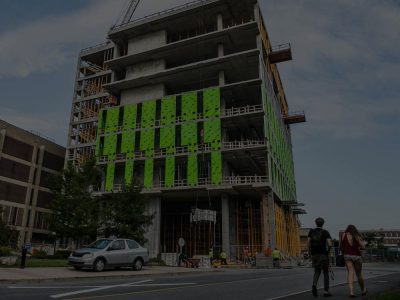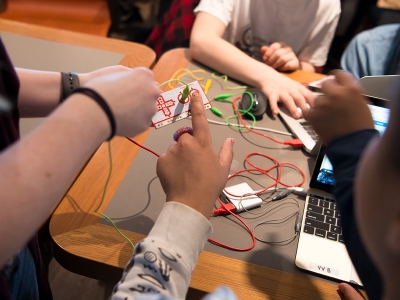By Reem Bahdi and Fahad Ahmad
Canada, for the first time, has decided to pursue terrorism charges for involuntary celibate or incel-related violence. In May 2020, terrorism charges were added against a 17-year-old in the murder of Ashley Noelle Arzaga.
The young man reportedly identifies with incels, a group that feels their supposed inferior social status is reflected in their sexual rejection by women. Most incels are self-loathing, many are suicidal and suffer from unrelenting anxiety. Some are violent.

The Canadian Security and Intelligence Services (CSIS) defines incel as a form of ideologically motivated violent extremism. In a 2019 report, CSIS linked the 2018 van attack in Toronto and a 2019 attack on a woman and her child in Sudbury to incels.
Expanding counterterrorism
Some experts argue that the incel terrorism charge represents a positive development. It moves the focus of anti-terrorism away from racialized communities. It also signals that law enforcement takes misogyny seriously.
These claims obscure worrying trends in counterterrorism.
National security agencies are shrouded in secrecy. The brief glimpses the public has into their workings reveal irrational decision-making, biased cultures and abuses of power.
The events of Sept. 11 gave national security agencies a renewed mandate to prevent terrorism by focusing on transnational terrorist organizations like Al Qaida. An enhanced legal regime was established to prohibit membership in these groups and disrupt their activities. Membership in a listed group became a marker of violence.
Individuals deemed members of terrorist organizations were tracked, deported, imprisoned indefinitely or allowed to be tortured overseas. Their finances were frozen. Sometimes, they were charged under the Criminal Code. Most of these charges were laid against racialized men.
Unlike the youth charged in the Arzaga murder, most of these charges were pre-emptive. That is, they related to preparatory acts where violence had not been committed but rather planned.
Abuses of power
Commissions of inquiry, legal proceedings and other investigations into conduct by Canada’s national security agencies — specifically, CSIS and the RCMP — have found disturbing abuses of power.
These agencies aided the overseas detention and torture of Canadian citizens. They entrapped individuals into terrorism. They perpetuated biases, including gender discrimination. They violated human rights and faced other legal claims for discriminatory treatment of Muslims and others. They failed to follow their own protocols. They resisted oversight and accountability. Their conduct in court raised questions about “prevarication” and their compliance with the obligation of utmost good faith.
CSIS’s 2019 Public Report signals that they will rely less on group affiliation to define terrorism. In response to “lone actor” and “home grown” terrorism, CSIS has shown a willingness to use ideology and politics as indicators of risk.
Adopting anti-terrorism strategies against incel ideology may make matters worse. Linking ideology with violence overlooks studies that have stressed that the motivations for terrorist violence are complex and varied.
More broadly, we have given national security agencies too much power over our politics.
Insufficient oversight
Despicable incel-related violence may make us more comfortable with giving national security agencies the power to define good and bad ideologies. It should not. We must remember that these agencies will use their power on those who have not committed violence. Agencies will also act against those they consider “at risk” of violence that they deem unacceptable. We know that these agencies have misused their power by targeting environmental activists and Indigenous protestors.
Recently, national security agencies have been given more powers through Bill C-59. They may now be permitted to break the law if the government allows. They can also use information derived from torture.
A new oversight body has been created, ostensibly, to check abuse of power by these agencies. But this body lacks needed resources; it can have four to seven appointees, several of which are part time. Moreover, it can offer no remedies such as compensation to further accountability.
Other bodies have been created to link national security agencies with civil society. CSIS now supports academic research. But some of their studies rely on troubling tropes, including invocation of culture as a marker of violence. Racism scholars have noted the ways in which culture can be a signifier for justifying discrimination.
A transparency advisory group was created, which has no impact on CSIS investigations or policing priorities.
In the meantime, the budgets of national security agencies continue to swell. CSIS had over $585 million in expenditures in 2018-19, a $70 million increase from four years ago. According to the Rideau Institute, a foreign and defence policy think tank, an additional $92 billion was spent on national security in the decade after Sept. 11. Critics charge that social services, including mental health services, remain underfunded.
Incel violence asks us to reflect on the societal reasons behind gender-based violence and how Canada can address this as a society-wide problem. We do not need and should not want an anti-terrorism response to misogyny.
This article is republished from The Conversation under a Creative Commons license. Carleton University is a member of this unique digital journalism platform that launched in June 2017 to boost visibility of Canada’s academic faculty and researchers. Interested in writing a piece? Please contact Steven Reid or sign up to become an author.
All photos provided by The Conversation from various sources.
![]()
Tuesday, June 16, 2020 in The Conversation
Share: Twitter, Facebook



